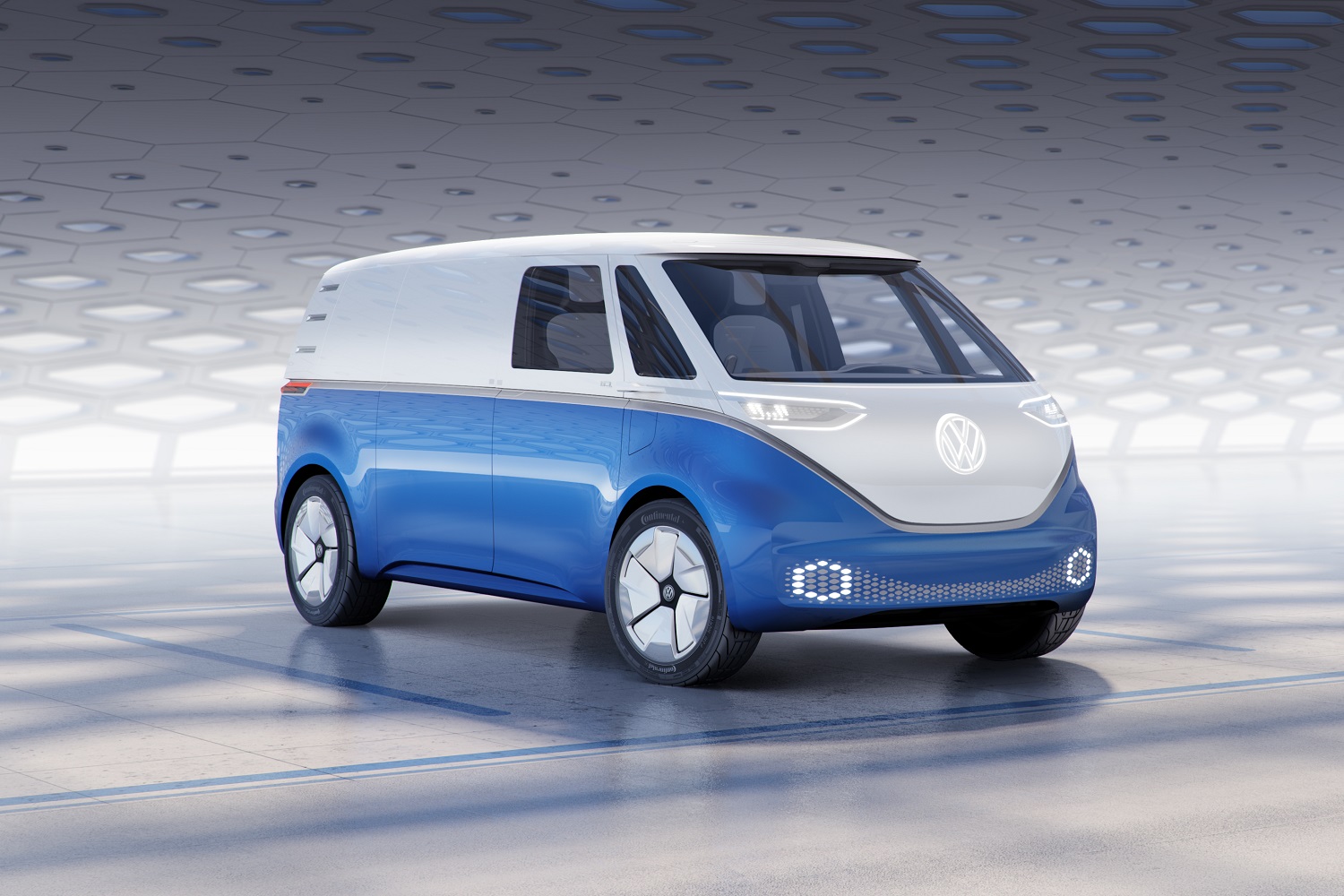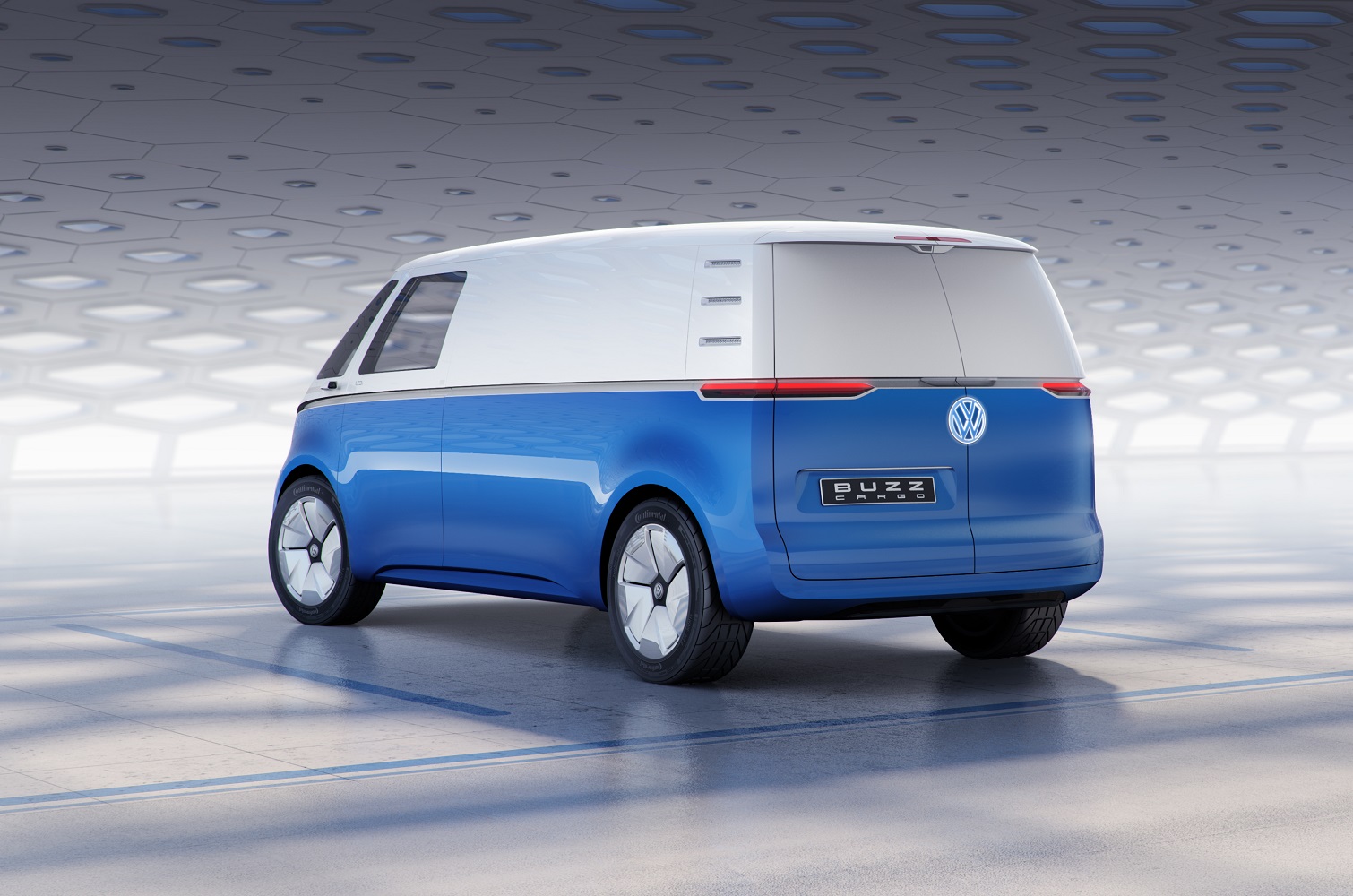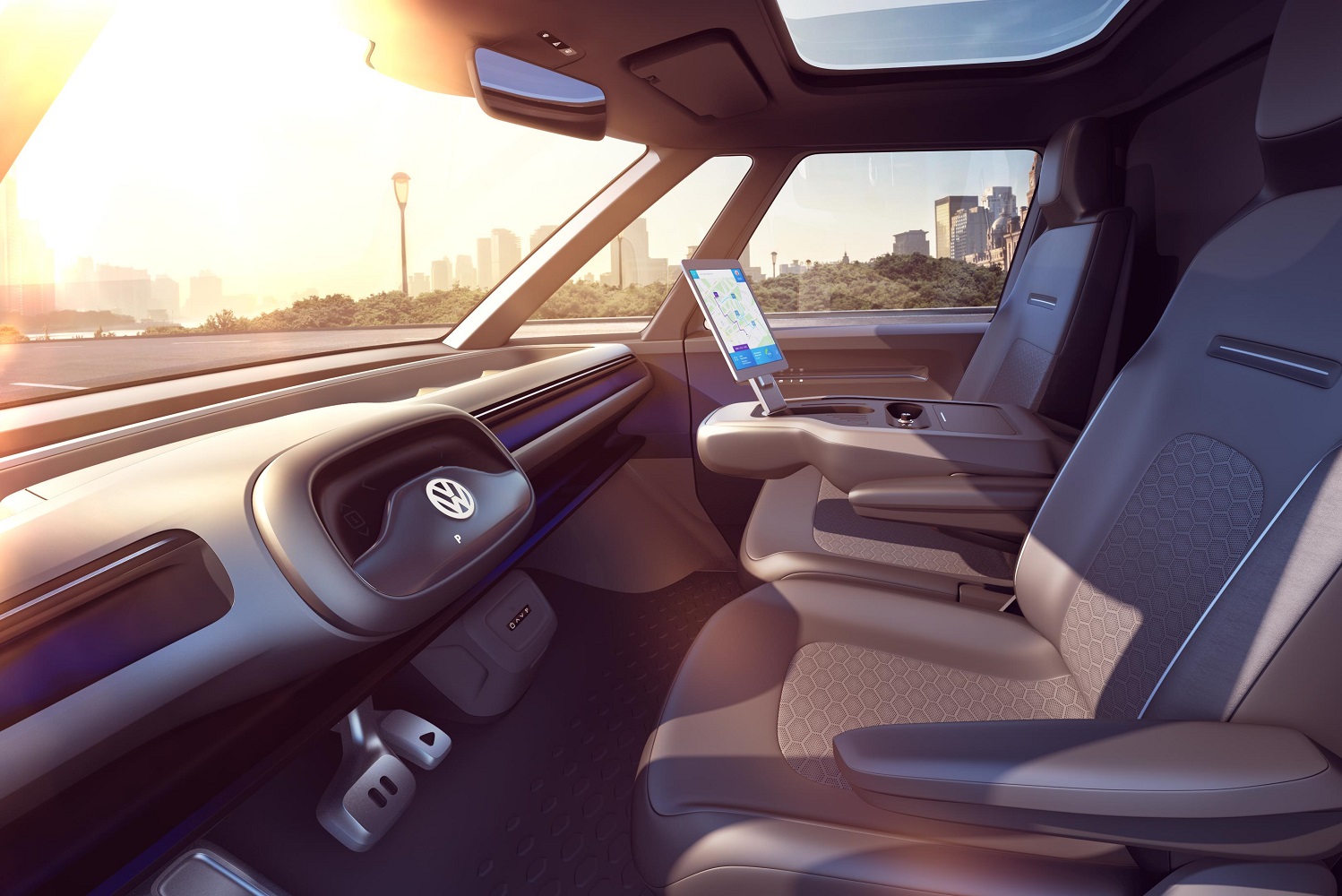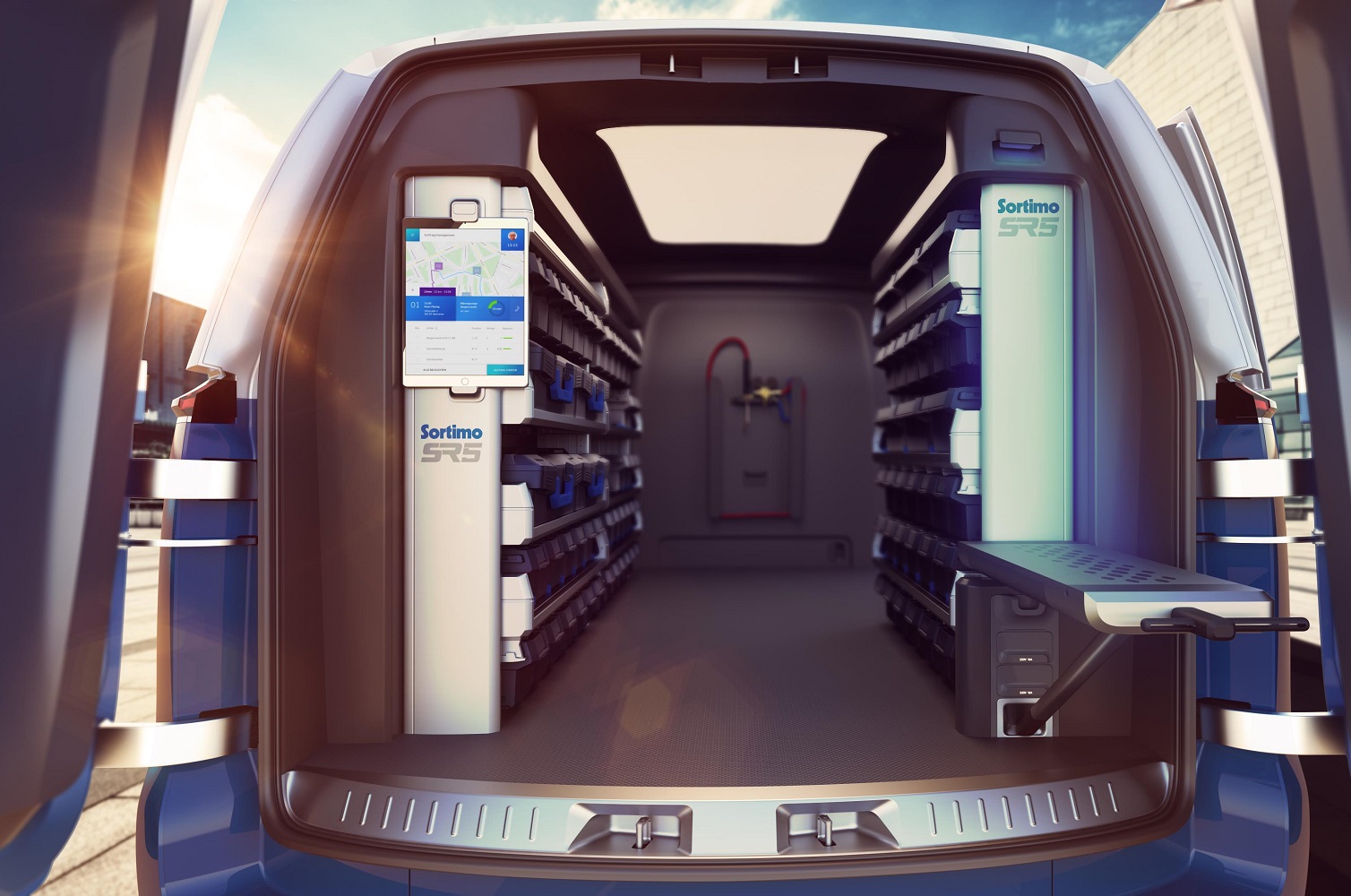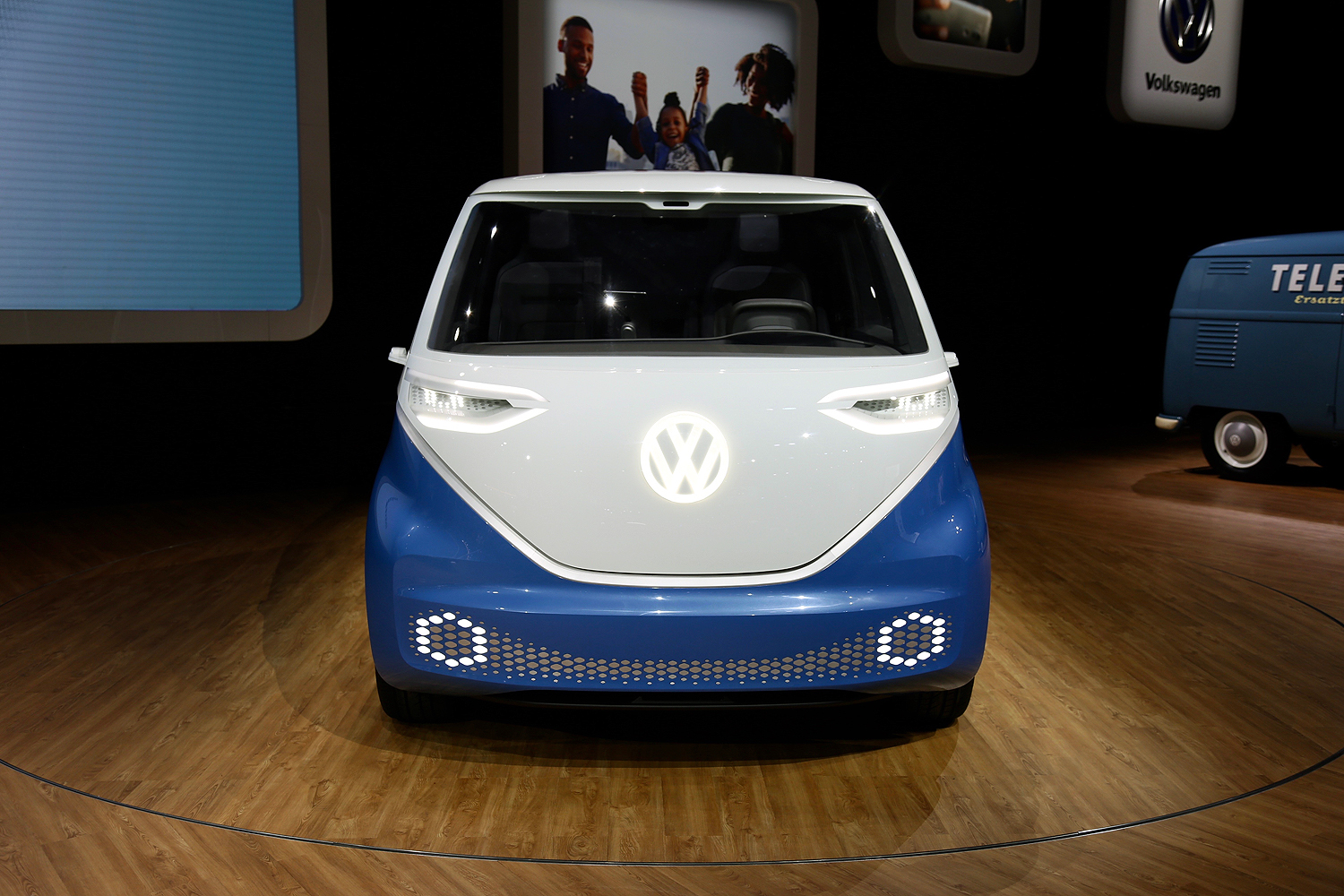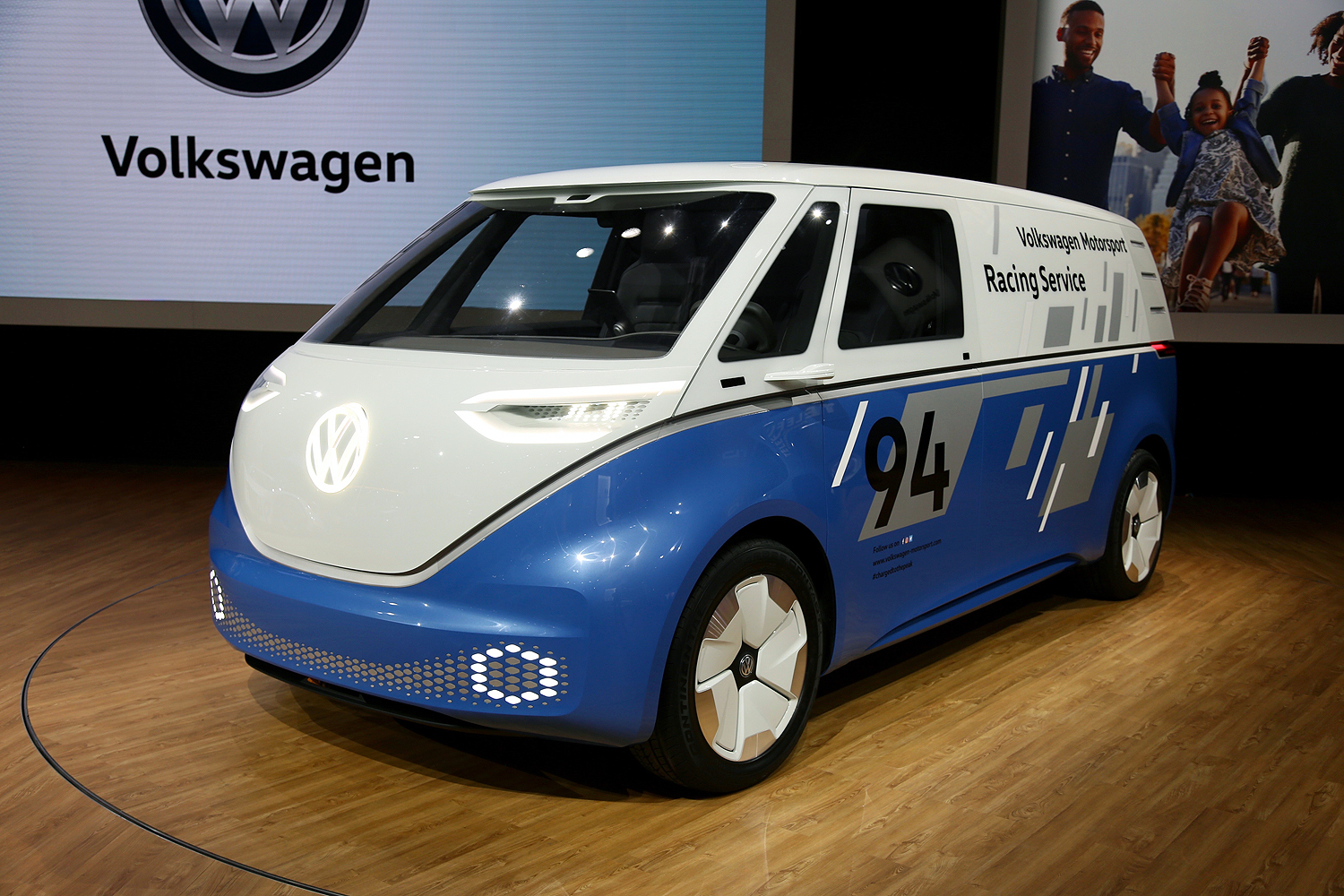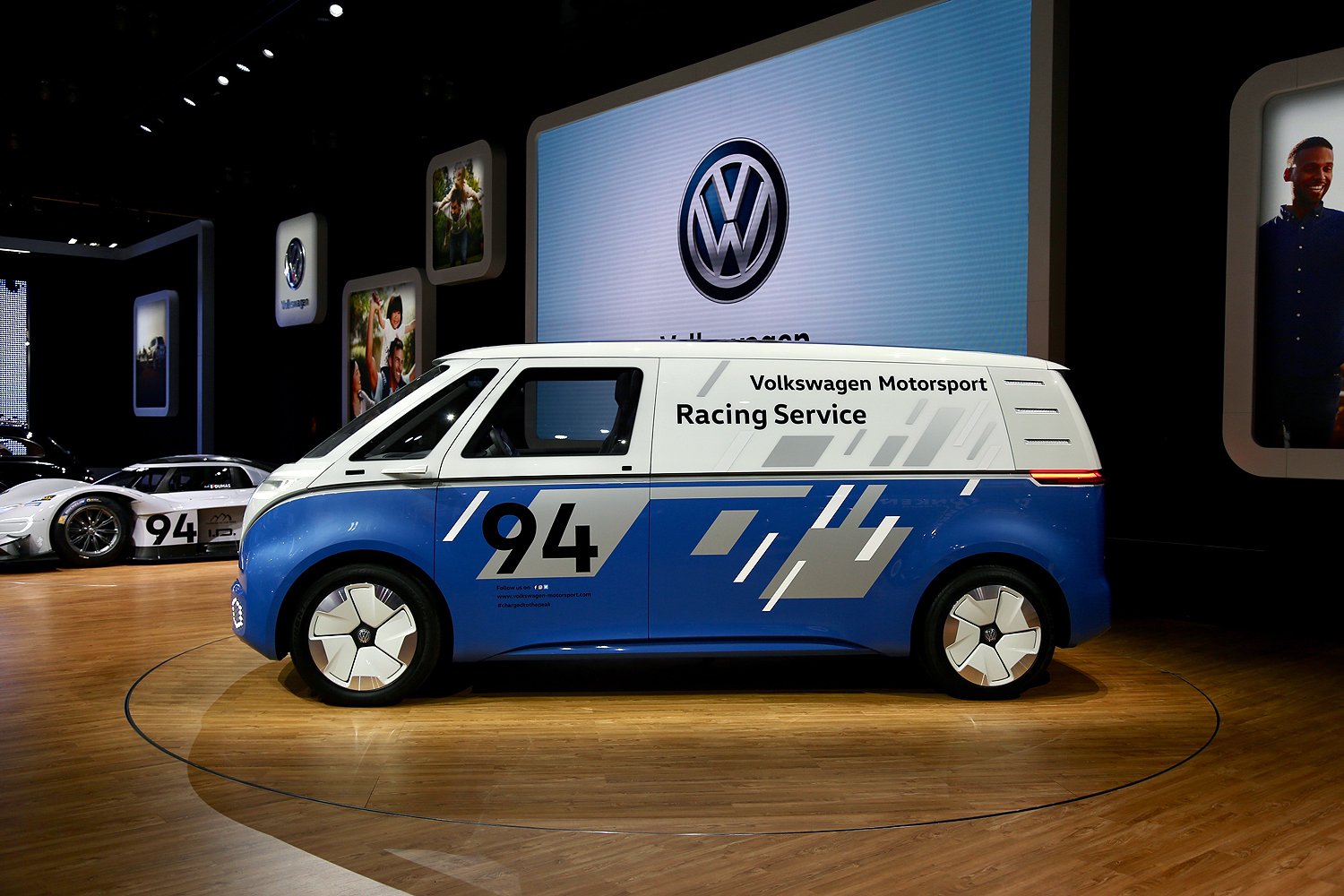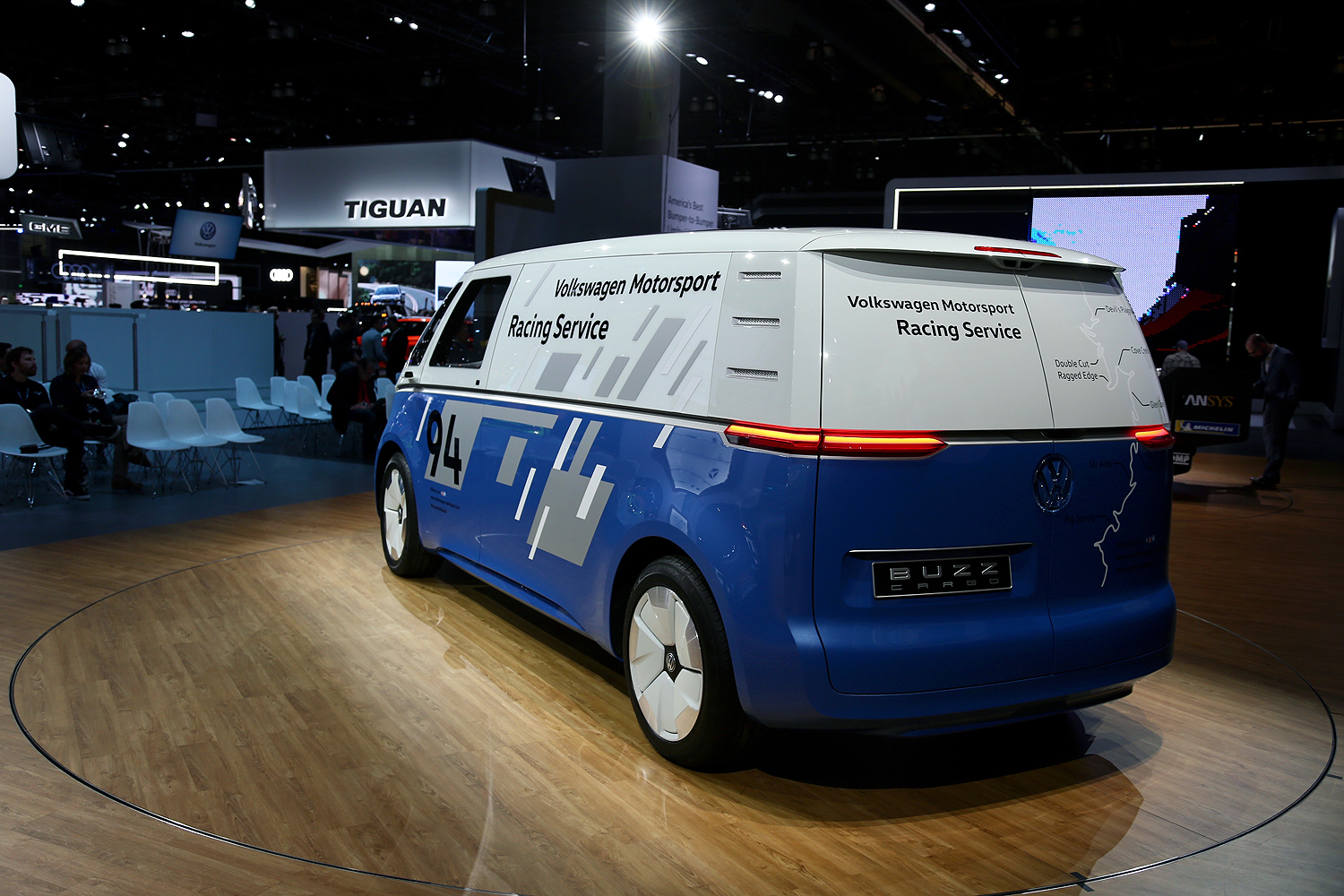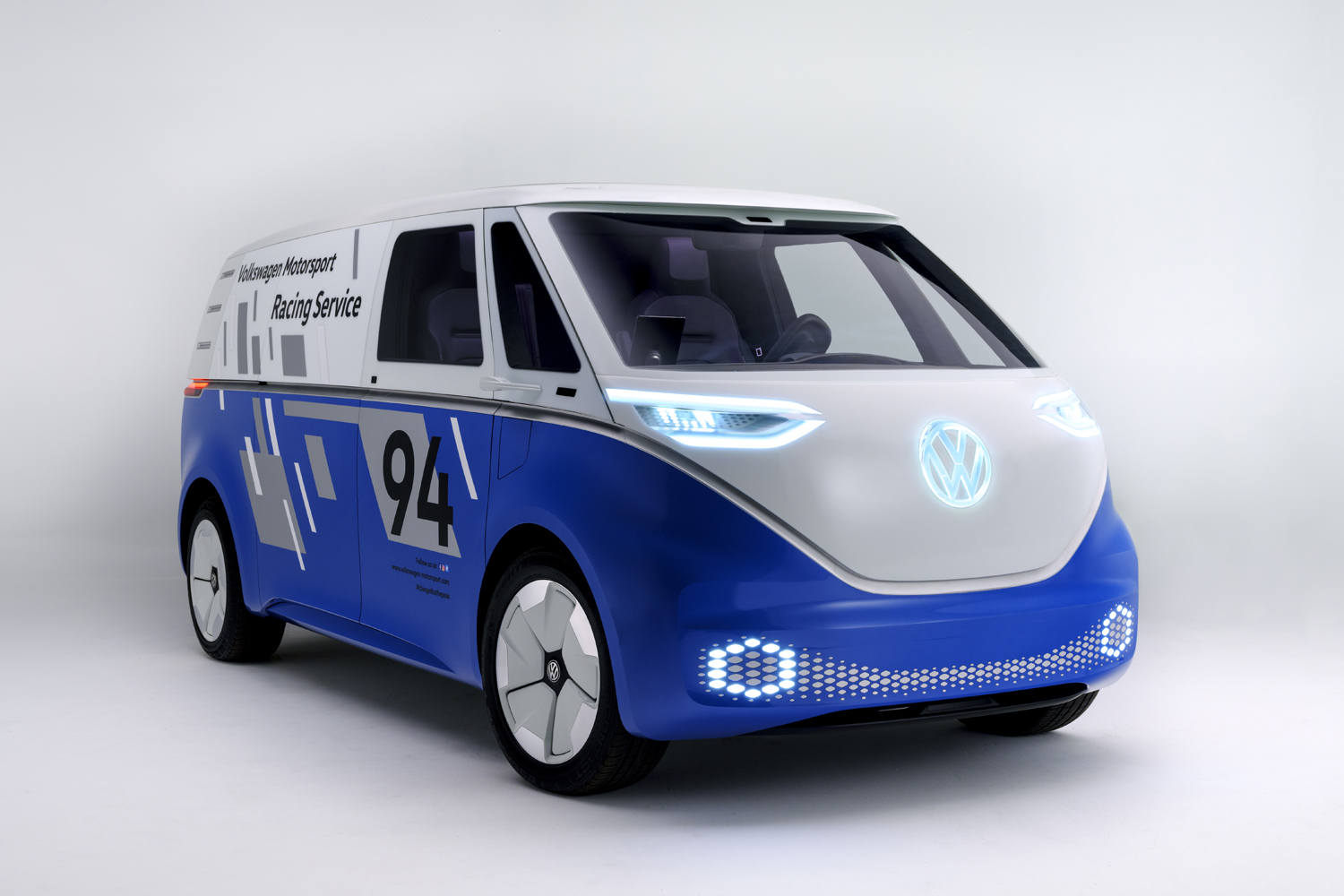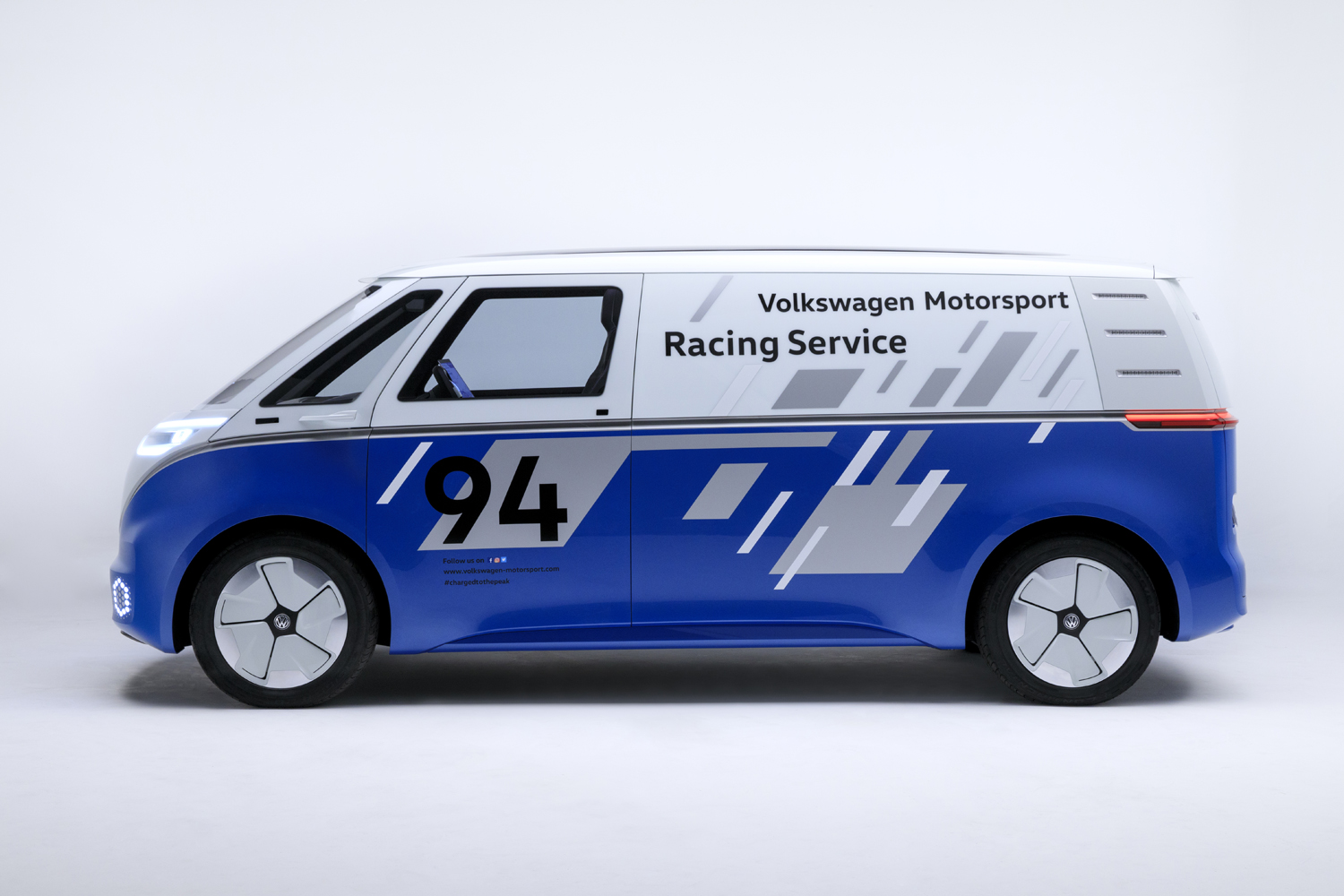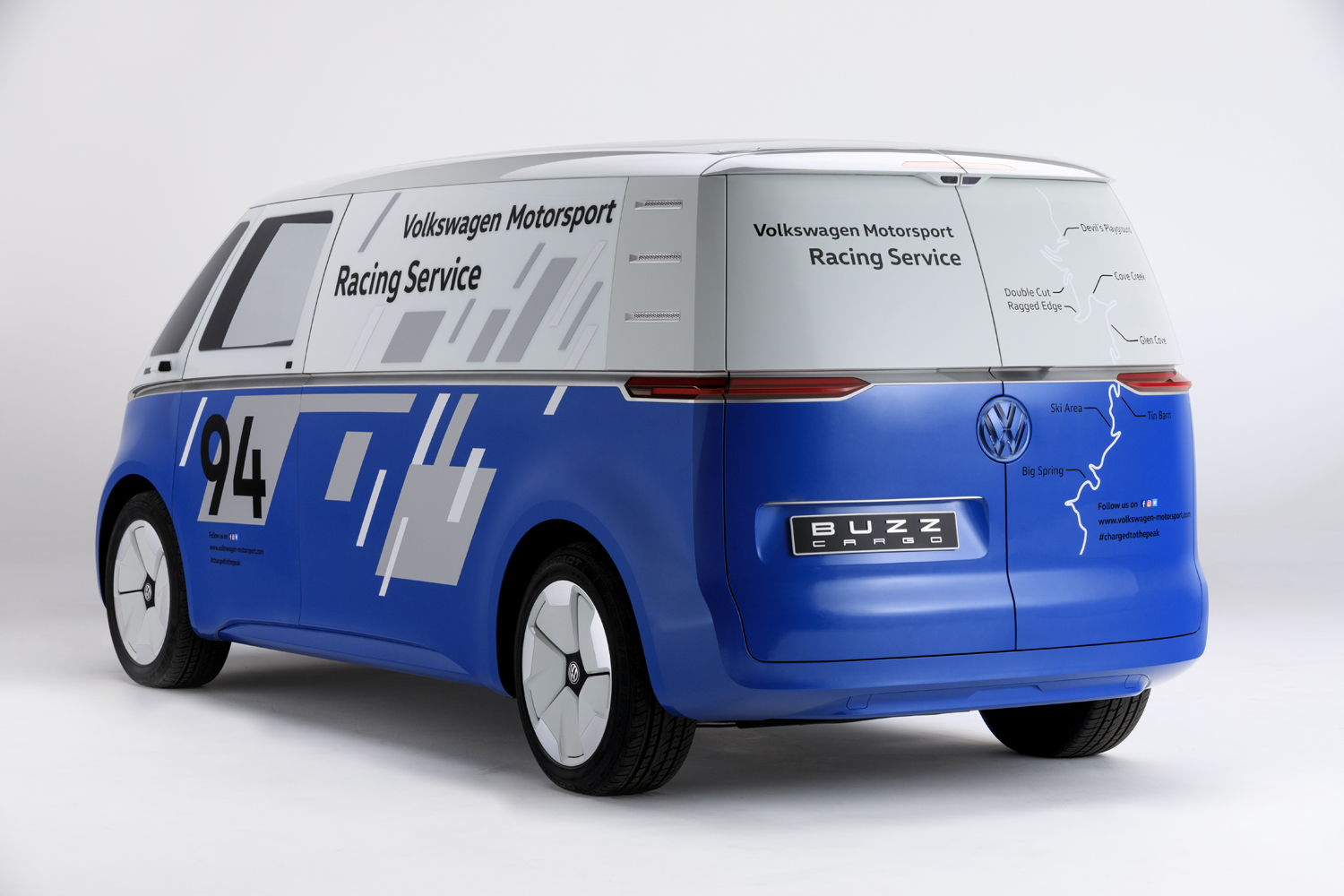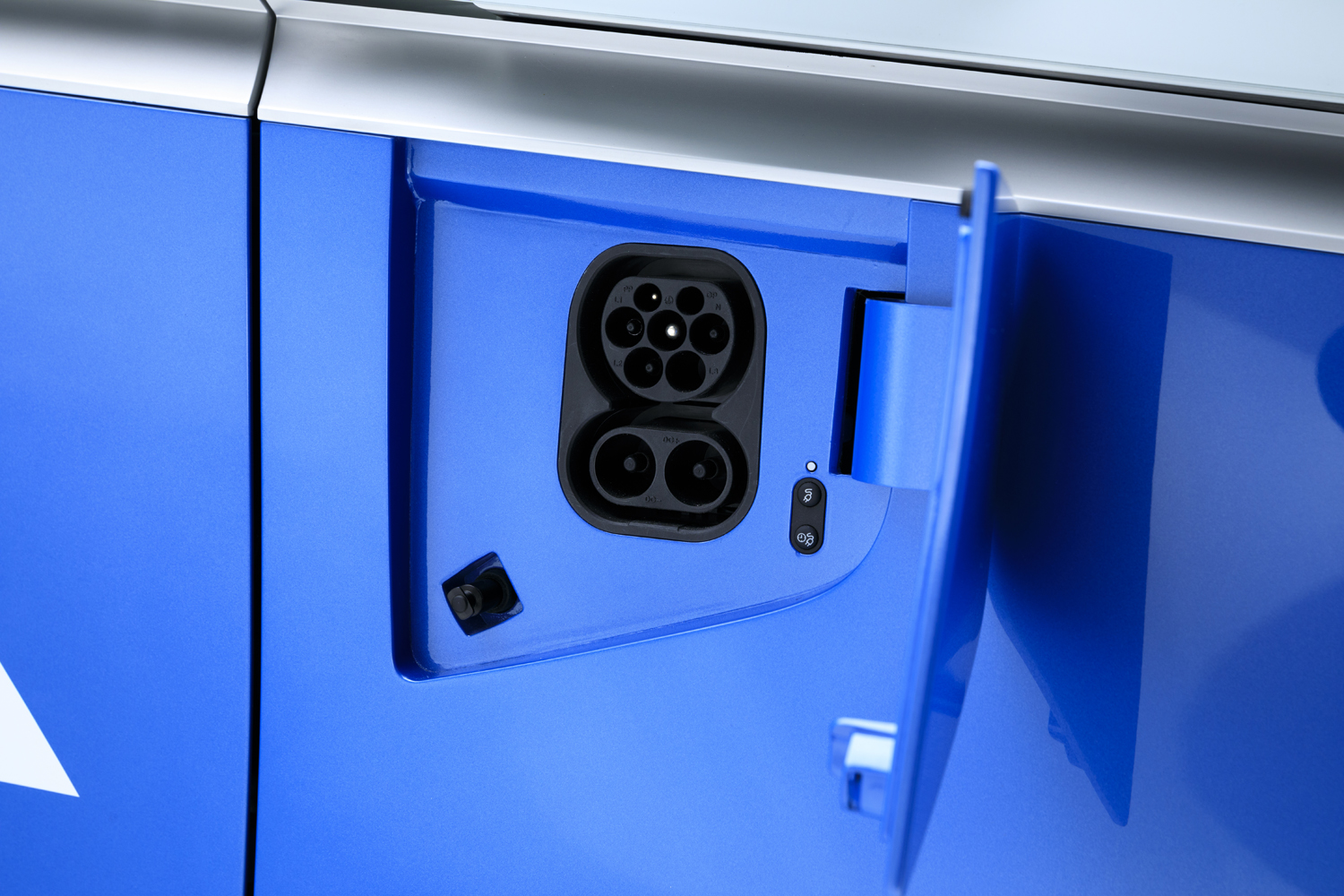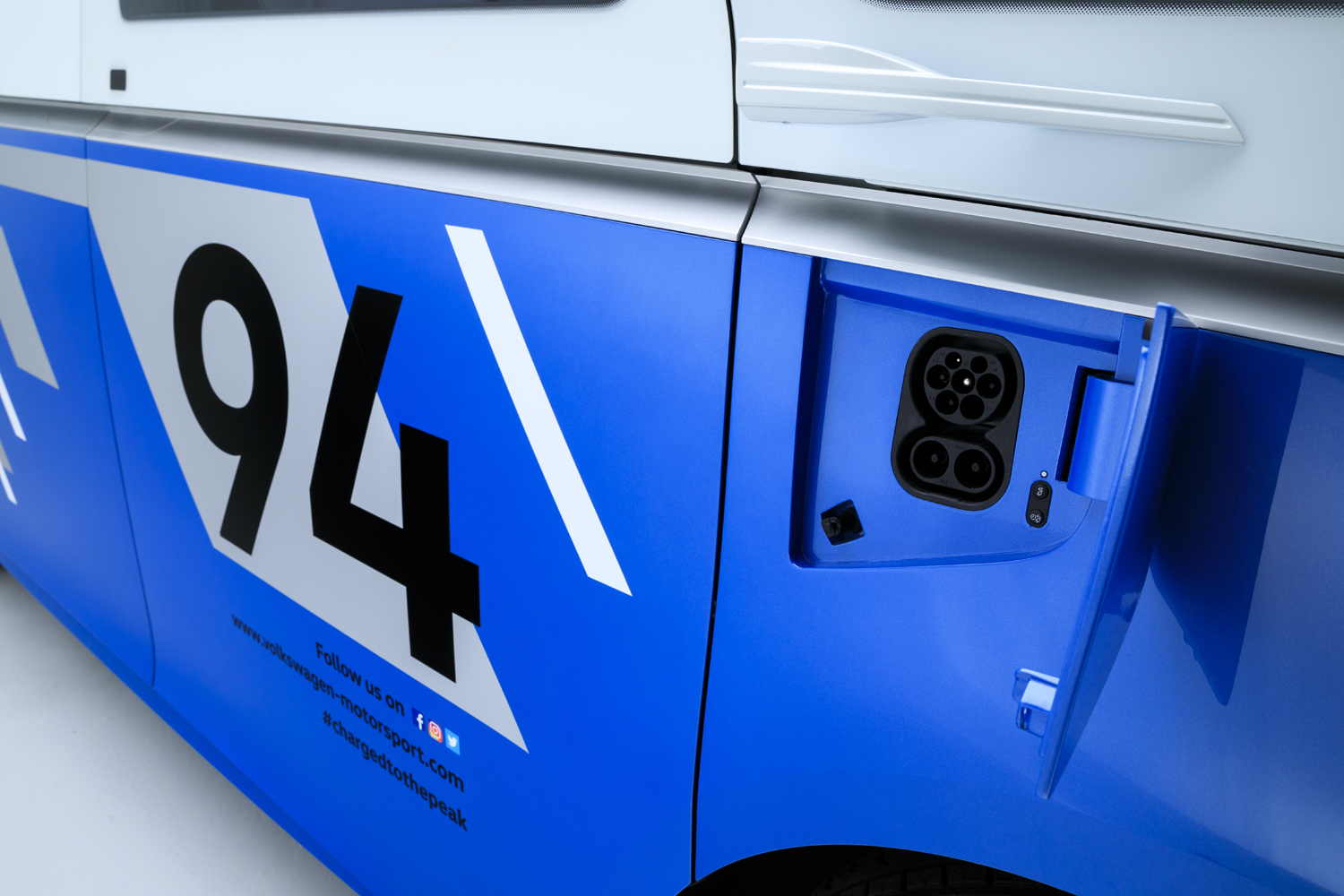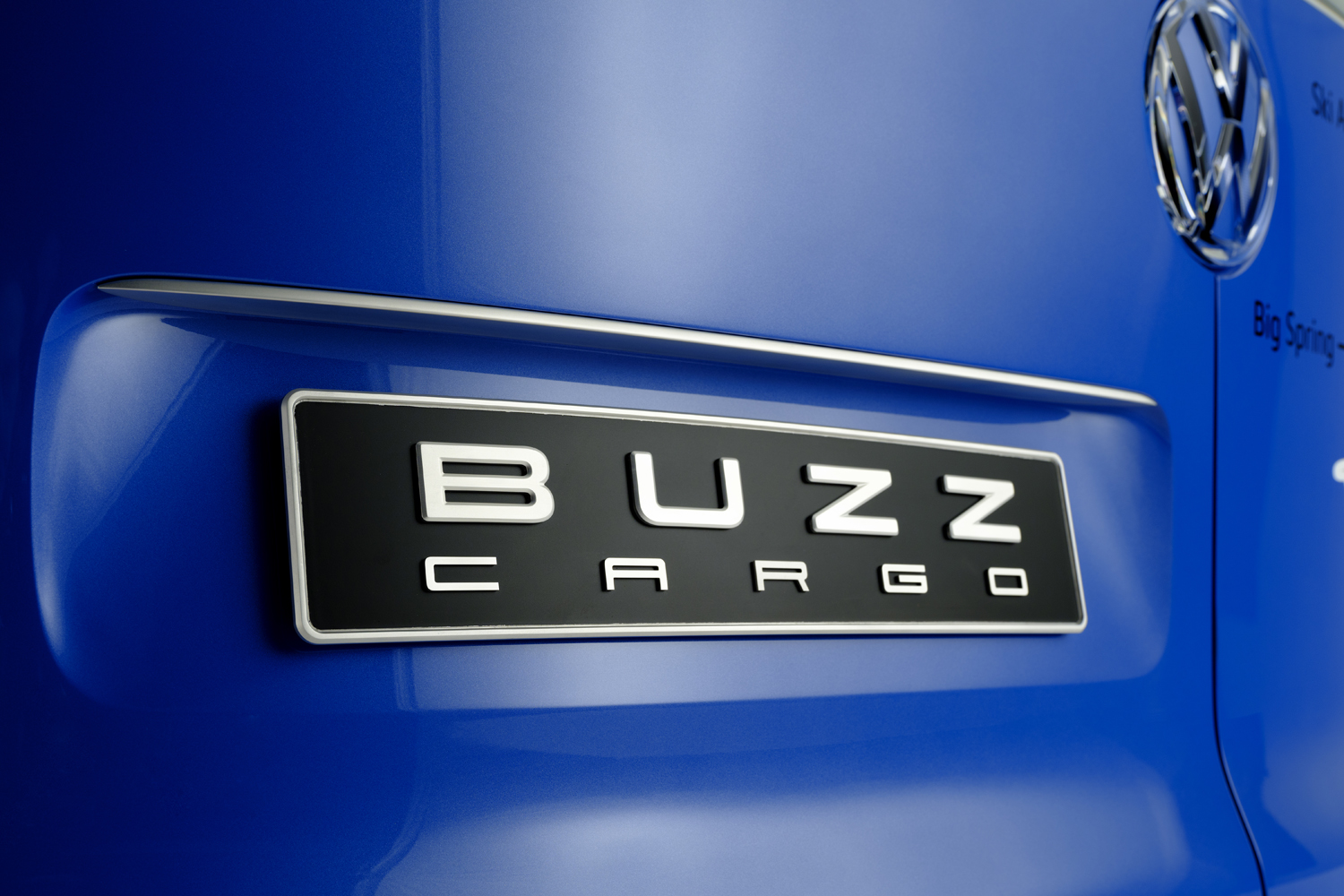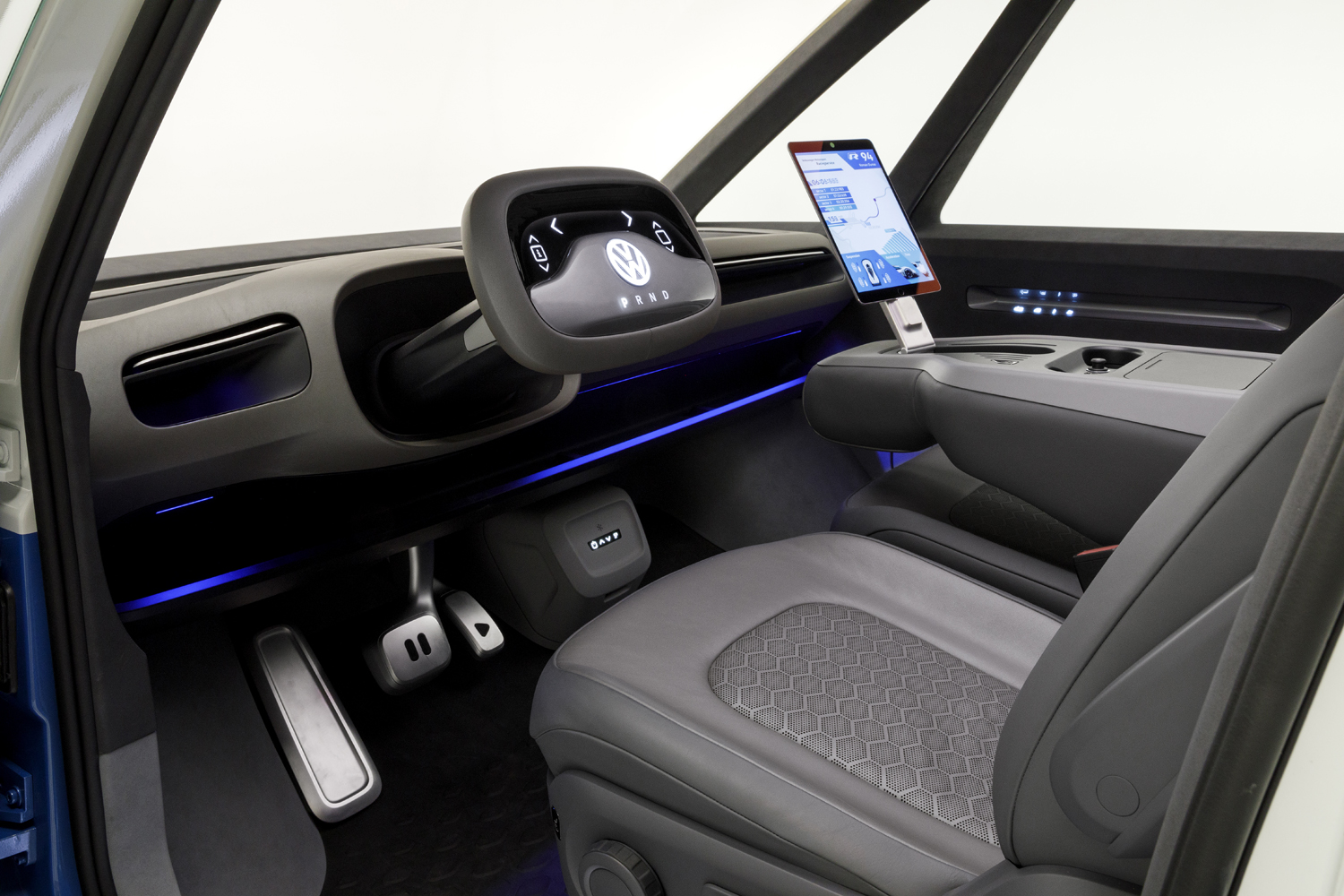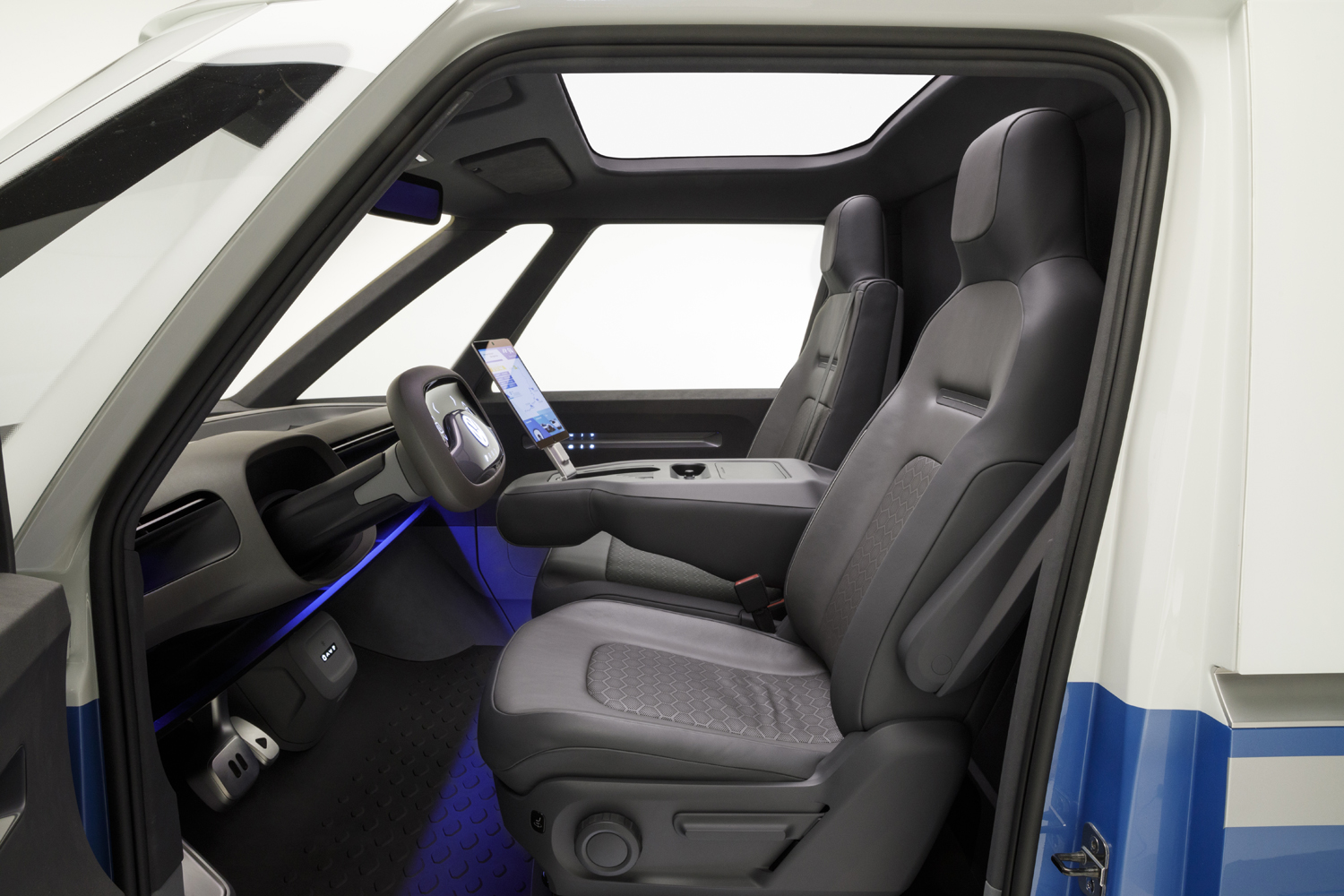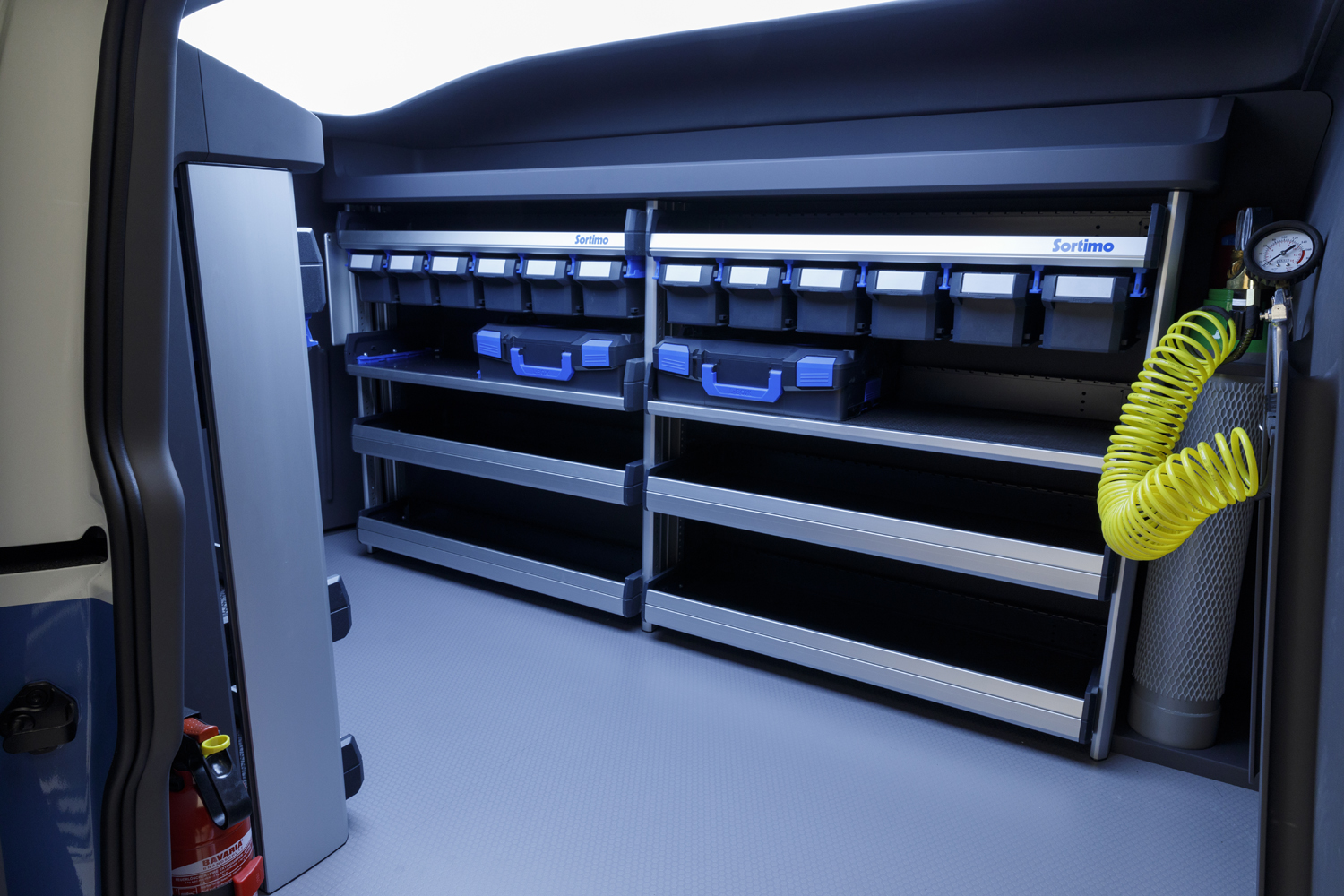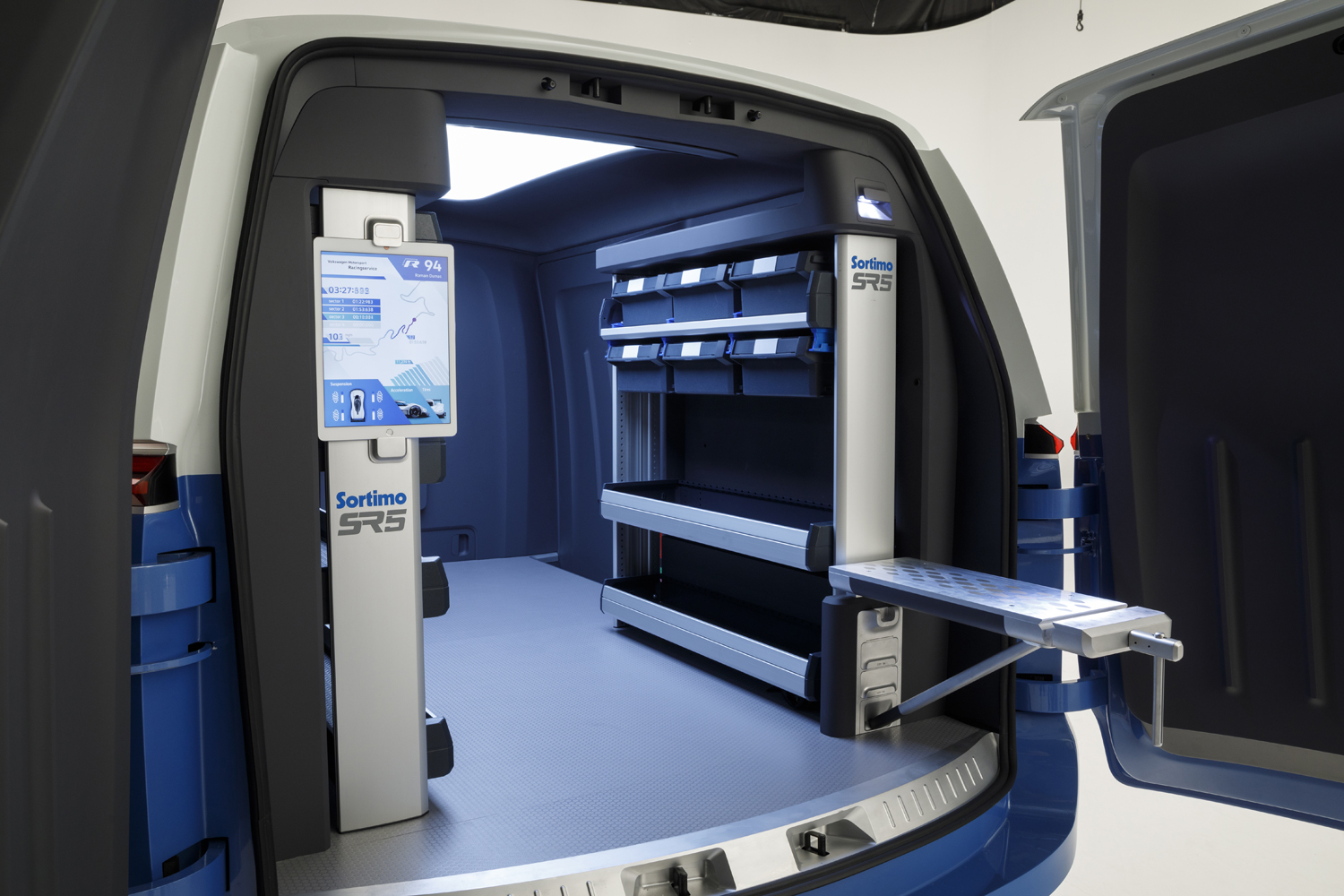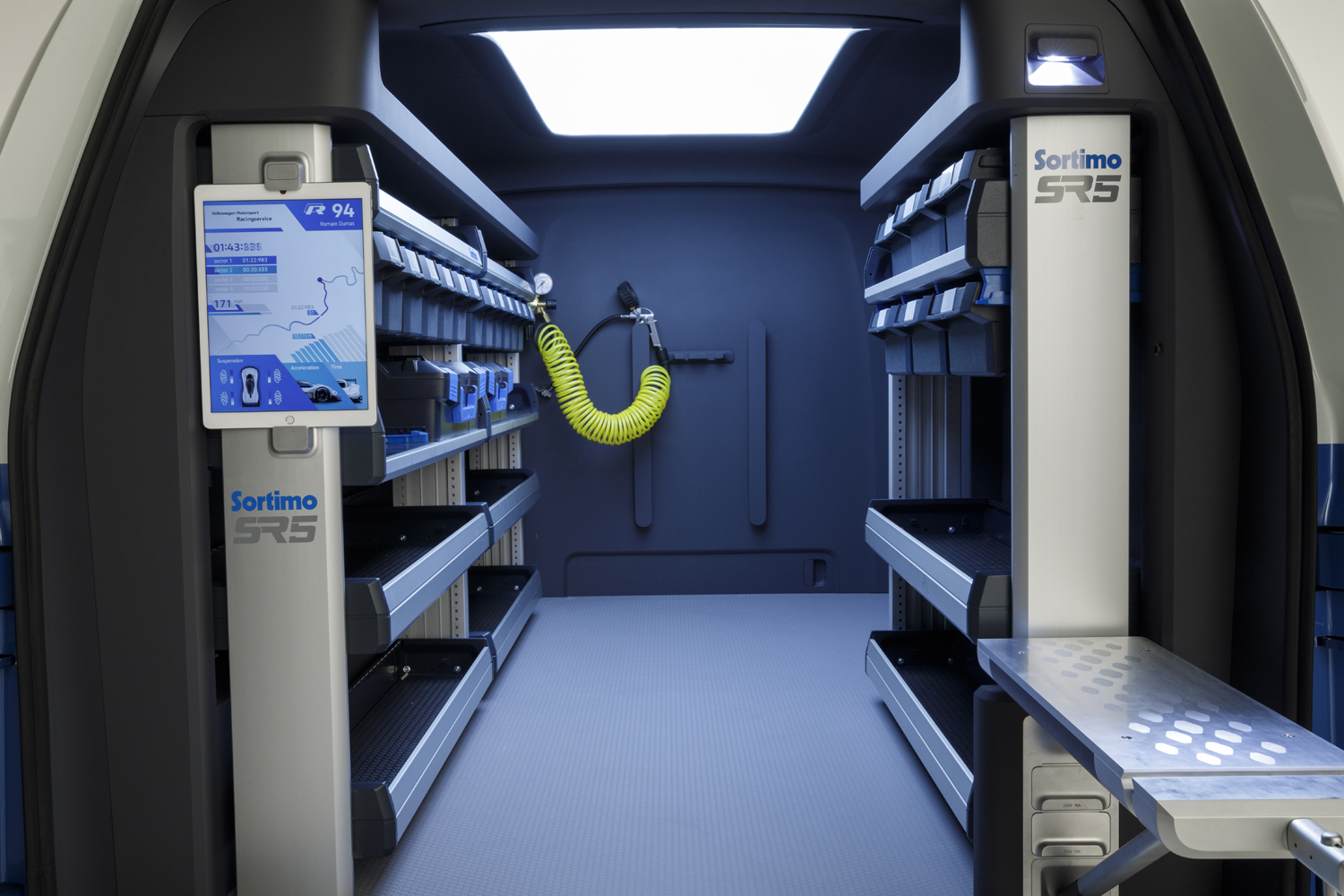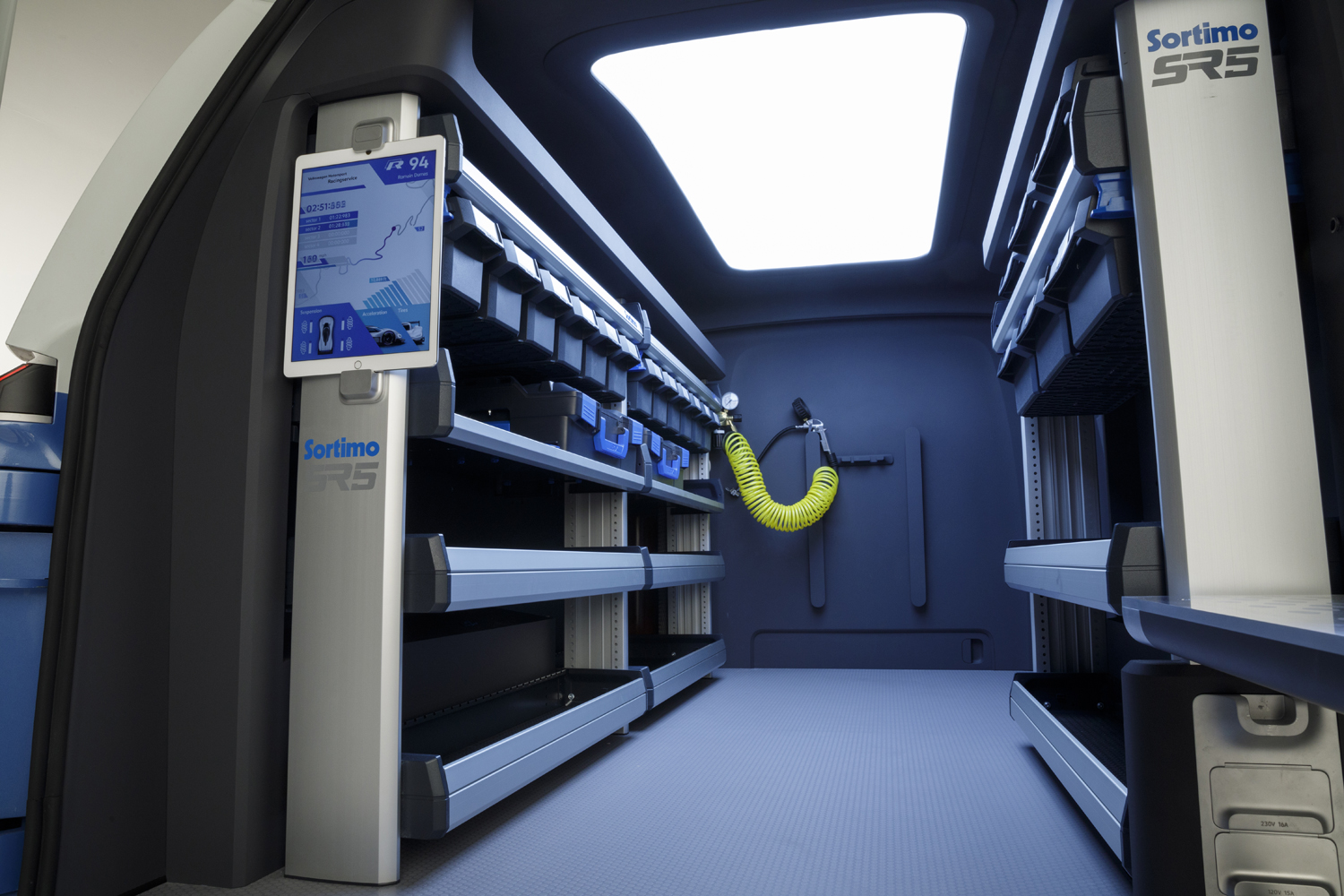Volkswagen channeled the vast heritage of its emblematic Bus when it showed us the vacation-friendly I.D. Buzz concept at the 2017 Detroit Auto Show. The German brand later unveiled a second variant of the concept, named I.D. Cargo, that’s ready to race across a crowded city to make a last-minute delivery. In Los Angeles, the Cargo morphed into an electric race support vehicle.
The Buzz and the Cargo share a lot, starting with a front-end design that liberally borrows styling cues from the original, rear-engined Bus that became synonymous with the hippie movement during the 1960s. Designers put a modern spin on the look in the name of safety and practicality. The front end isn’t quite as flat as the original’s, and a full windshield replaces the two-piece unit. Vents chiseled into the rear roof pillars create another visual link between the I.D. Cargo and its highly collectible predecessor.
That’s where the similarities between old and new stop. While the original Bus was built on an evolution of the Beetle platform, the Cargo shares its modular MEB architecture with every upcoming electric addition to the Volkswagen family. Specifications remain tentative — the Cargo is a concept, after all — but the Wolfsburg, Germany-based firm notes the van can receive a large 111-kWh lithium-ion battery pack that theoretically provides up to 340 miles of range. To add context, the biggest pack offered on the Tesla Model X is a 100-kWh unit. Solar panels embedded into the van’s roof add up to 9.3 miles of range per day to the battery pack, giving owners an incentive to park in the sun. Don’t worry, they also power the A/C.
The pack zaps the Cargo’s rear wheels with 201 horsepower in the default configuration. Making it all-wheel drive is as simple as adding a second electric motor over the front wheels. Going electric permits a perfectly flat loading floor, which the original Bus certainly couldn’t boast about — ask anyone who has ever camped in one. Volkswagen also added a 230-volt outlet which draws electricity from the battery pack to run power tools in the remotest of locations. This feature turns the Cargo into a mobile workshop with a 1,760-pound payload.
Volkswagen replaced the instrument cluster with a 3D, augmented reality head-up display which shows the driver key information about the car and its surroundings. Everything else (including navigation directions, climate control settings, and media options) is displayed on a portable tablet. Level four autonomous driving technology lets the van drive itself in certain circumstances. When software takes over, the steering wheel retracts into the dashboard and the driver’s seat can pivot by up to 15 degrees to help the driver-turned-passenger find a comfortable position.
You’re in luck if you fell head over heels the moment you laid eyes on this retrolicious panel van. Volkswagen confirmed it will build the I.D. Buzz starting in approximately 2022 and the Cargo variant will follow shortly after. Both models will receive a new name, and we expect stylists will tone the design down a notch, but the overall look will make the transition from a show car to a production car without major changes.
Editors' Recommendations
- Volkswagen ID.4 vs Tesla Model Y
- 2022 Volkswagen ID. Buzz first drive review: The iconic hippie hauler goes electric
- Volkswagen ID. Buzz prototype first drive: Here comes your van
- 2021 Volkswagen ID.4 first drive review: Lightning bug
- Volkswagen teases Project Trinity flagship electric car

